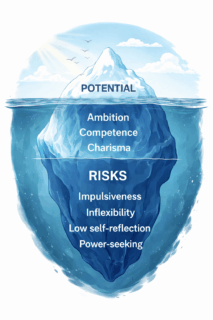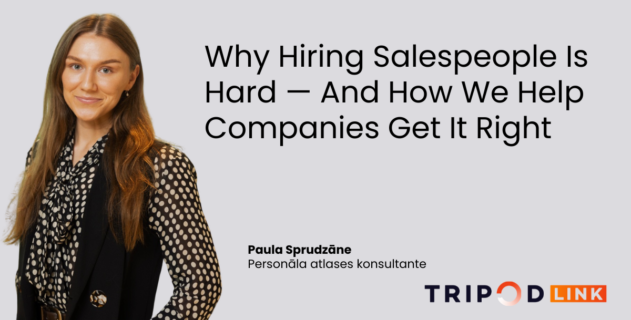
Since I began working in consulting, I’ve repeatedly encountered a recurring pattern. When meeting with potential clients, I often hear things like: “I’ve been working in HR for over 10 or 20 years – I know what I’m doing. What exactly could you offer me?” Or: “I’ve taken hundreds of different tests – what could your assessments possibly do better?”
Caution and skepticism, of course, are entirely human and understandable. But I’d like to believe that curiosity and openness to new ideas are just as natural – especially when we’re talking about people and their potential.
I’ve studied psychology both academically and in practice for nearly twenty years. I’ve not only completed but also designed and adapted a range of psychometric tests, and the field still fascinates me – because it’s dynamic, multilayered, and deeply human. That’s why this kind of attitude – “I already know everything” – surprises me on one hand, and on the other, it slightly disappoints me.
Not long ago, I unexpectedly came across a theory I hadn’t thought about since my undergraduate days: confirmation bias. The American Psychological Association (APA) defines it as the tendency to seek out evidence that supports our existing beliefs – usually by highlighting or actively pursuing confirmatory information while ignoring or failing to consider contradictory evidence.
In that instance, the theory was discussed in relation to the wellness industry, but I immediately connected it to the conversations I’ve had with HR professionals – discussions that remain in my memory not only as professionally challenging but also emotionally complex.
In academic literature, confirmation bias is seen not only as a cognitive habit but also as an instinctive mechanism that helps reduce the psychological discomfort we feel when confronted with information that threatens our current belief systems. This bias becomes especially prominent when decisions are tied to one’s personal competence or professional identity (Arshad et al., 2021).
That’s precisely why HR professionals and managers may find it difficult to accept the idea that their decision-making – for instance, intuitive hiring or subjective team evaluations – might be flawed or in need of improvement. Instead, they tend to look for information that confirms “our way works,” while dismissing potentially more effective or systematic alternatives.
In my experience, when an HR professional or manager has previously had a negative experience with assessments (e.g., they were poorly implemented or misinterpreted), a general belief forms: “tests aren’t useful.” And from there, only information that supports this belief is welcomed.
We’re all human. We all, at times, respond cautiously to changes that force us out of our comfort zone. Confirmation bias acts like a protective mechanism – but one that can hinder growth, both individually and organizationally.
What can we do about it?
· Recognize it – in yourself and your team. Talk about it openly. Ask: am I resisting this idea because it’s flawed, or just because it’s unfamiliar?
· Involve the skeptics. New tools can be piloted alongside those most resistant. This provides direct experience and builds trust.
· Educate yourself and others about types of bias. Understanding how our thinking works helps us make better decisions.
In conclusion:
Confirmation bias isn’t a flaw to be eliminated – it’s a natural cognitive process we can learn to manage. Researcher R. S. Nickerson – whose 1998 article remains a foundational work in the study of confirmation bias – argues that this bias is so pervasive that it should be considered a basic feature of human thinking, not an anomaly. However, he also emphasizes that it can be reduced, especially in environments that promote diverse perspectives, critical thinking, and conscious decision-making.
In the world of HR, this means our strength lies not in knowing everything – but in being willing to learn. In being willing to listen, to compare, to try new approaches. Not to reject our past experience, but to build upon it while remaining curious.
Because sometimes, the greatest courage is admitting: “Maybe I don’t know everything just yet.” And that’s exactly where something truly meaningful – both professionally and personally – can begin.
References Nickerson, R. S. (1998). Confirmation bias: A ubiquitous phenomenon in many guises. Psychological Bulletin, 124(2), 175–196. https://doi.org/10.1037/0033-2909.124.2.175
Arshad, R., Rizvi, S. T. H., & Fareed, M. (2021). Confirmation bias in individual-level perception and decision-making: A literature review. Asian Journal of Business and Accounting, 14(1), 1–33. https://doi.org/10.22452/ajba.vol14no1.1







